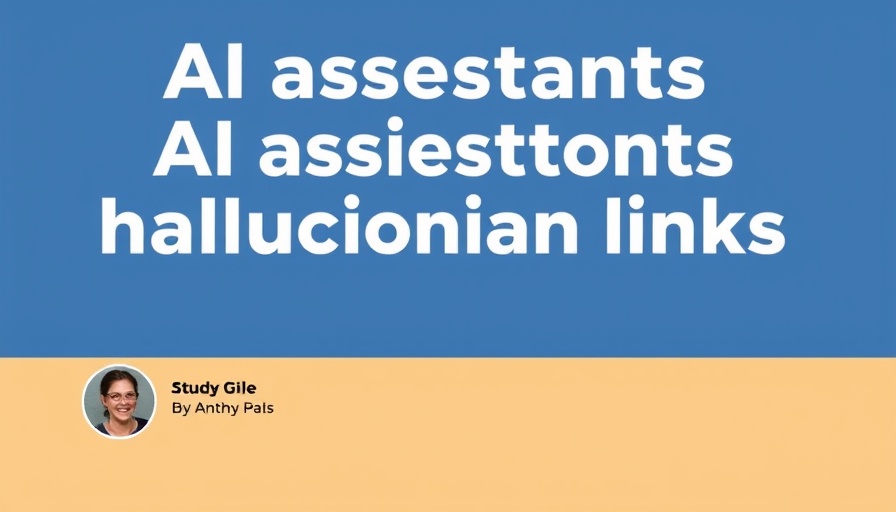
The Issue of AI Hallucinations in Web Searches
Artificial Intelligence (AI) has transformed the way we interact with the internet, enabling us to find information quickly and efficiently. Yet, a troubling phenomenon has emerged: AI assistants like ChatGPT, Claude, and others sometimes provide inaccurate URLs, leading users to non-existent pages—a phenomenon known as hallucination. A new study sheds light on the frequency of these errors by examining a staggering 16 million URLs cited by various AI platforms.
Shocking Findings: How Often Do AI Assistants Fail?
The study found that AI assistants are responsible for sending visitors to 404 error pages—pages that no longer exist—2.87 times more frequently than traditional search engines like Google. Leading the pack in this misdirection is ChatGPT, with 1.01% of its links leading to 404 errors. This discrepancy underscores a significant concern for both users and website owners.
Comparative Breakdown: AI Assistants and Their 404 Rates
The results revealed a stark contrast among different AI platforms. The table below summarizes the 404 rates associated with various AI assistants:
| Referrer | Likely 404 Pages | Total Unique URLs | 404 Rate |
|---|---|---|---|
| ChatGPT | 84,465 | 8,332,436 | 1.01% |
| Perplexity | 3,529 | 1,133,084 | 0.31% |
| Copilot | 1,466 | 431,319 | 0.34% |
| Gemini | 734 | 351,242 | 0.21% |
| Claude | 550 | 95,293 | 0.58% |
| Mistral | 8 | 6,760 | 0.12% |
Notably, Mistral, while having the lowest 404 rate at 0.12%, also delivered the least referral traffic. This raises questions about the reliability of AI-assisted searches and their implications for web traffic and SEO strategies.
Challenges in Measuring AI Hallucinations
While the findings are alarming, it's essential to recognize that not all errors may be correctly identified as hallucinations. Some legitimate 404 pages may not include “404” or “not found” in their titles, complicating the tracking of actual errors. Moreover, AI assistants are still learning to navigate vast pools of information, which indicates that we might not yet see the complete picture of their accuracy.
The Future of AI in Search Functionality
What does this mean for marketers and businesses? As AI continues to evolve, the need for more accurate and reliable information sources is paramount. Understanding how often AI assistants hallucinate links can empower businesses to better prepare for potential pitfalls in web traffic. For instance, optimizing web content to ensure that the pages linked by AI assistants are valid and regularly monitored can significantly reduce user frustration and improve user experience.
Closing Thoughts: The Need for Trustworthy AI
As we integrate AI into our daily lives, transparency in how these tools function becomes crucial. Marketers and businesses must not only be aware of how AI assistants operate but also stay alert to the challenges they present. Building trust with audiences means ensuring that the links provided by AI are valid, informative, and lead to relevant content. The responsibility is on developers and AI platforms to refine their algorithms, enabling users to experience the full potential of AI technology.
In summary, recognizing the frequency of AI-induced errors is foundational for both users and business strategists. This surprising study underscores the need for a more nuanced understanding of AI capabilities and their limitations.
 Add Row
Add Row  Add
Add 




Write A Comment